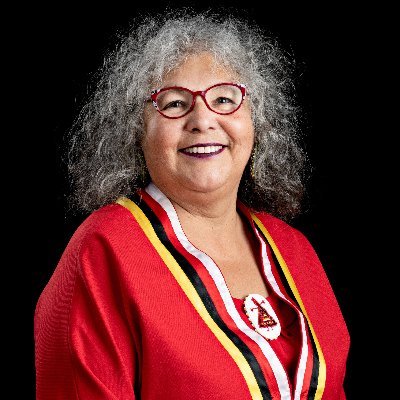
- Details
- By Lorraine Whitman
International Women’s Day is a time to look back over the previous year and reflect upon the positive strides that have been made, in Canada and around the world, in levelling the advantages distributed according to gender.
At the Native Women’s Association of Canada (NWAC), we also pause to consider the special circumstances of Indigenous women here and abroad as we assess whether there has been progress made on human rights, justice, economic stability, and basic security.
Looking back at the past year under the shadow of COVID-19, I believe there have been few strides forward in any of these areas, for Indigenous and non-Indigenous women alike.
In fact, we know the pandemic made things worse for the First Nations, Métis and Inuit women of Canada.
NWAC commissioned a survey last spring that found our members, who are already the victims of what the National Inquiry into Missing and Murdered Indigenous Women found to be a genocide, are at increased risk of violence because of the pandemic. The supports they rely upon have been cut off and many are forced to isolate with abusive family members.
But that is not the only way the virus has blocked the advancement of Indigenous women’s equality over the past 12 months.
We had hoped for the release, in June 2020, of a National Action Plan to respond to the 231 Calls for Justice of the National Inquiry’s final report. The government says COVID-19 is at least partly to blame for the fact that the plan did not materialize.
However, NWAC is now working with federal officials and other Indigenous organizations to draft the much-needed plan and I am hopeful that it will be tabled this coming June.
I will note that that work is being conducted even as the pandemic continues to greatly restrict our social interactions.
One thing we can say about COVID-19 is that it is a great leveller, an equalizer, in a world filled with inequality. It threatens all members of society – men, women, Indigenous, non-Indigenous – without regard to race or sex. All of us, in every part of the world, have had to come together to fight it.
But that rather unfortunate bit of equality is about to change.
Because, even as we in Canada complain about the amount of time it is taking to get COVID vaccines into our arms, there are Indigenous women in other countries who are being told they will have to wait two or three years before they can get their shot.
I am calling upon world leaders to ensure that the vaccines are distributed everywhere as quickly as possible, not just for the sake of equality – though that should be a significant motivation - but because this disease will only be contained when the possibility of immunity is available to all.
So what, if anything, can we say has occurred to advance the cause of women since March 8, 2019?
My focus will always be on the status of Indigenous women in particular. And, despite the pandemic, I have sensed over the past year a real and growing desire on their part to come together and tackle problems like the violence that is directed against us. That is especially true of Indigenous women across the Americas.
The problem of violence is, at last, well recognized in Canada thanks to the advocacy of NWAC and other Indigenous groups. Now our sisters abroad need us to stand up for them and to find ways to keep them safe, just as we are looking for ways to keep Indigenous women safe in Canada. We need to support each other.
On this International Women’s Day, thanks to COVID-19, we can’t be there physically for Indigenous women beyond our borders, but we can be there in our hearts, our spirit, and our prayers – and in our advocacy for a more equal future for us all.
Lorraine Whitman (Glooscap First Nation) is president of the Native Women’s Association of Canada (NWAC).
More Stories Like This
Jesse Jackson Changed Politics for the BetterNative News Online at 15: Humble Beginnings, Unwavering Mission
From the Grassroots Up, We Are Strengthening the Cherokee Nation
Friday the 13th: When Superstition Proves More Powerful Than Law
Congress Must Impose Guardrails on Out-of-Control ICE
Help us defend tribal sovereignty.
At Native News Online, our mission is rooted in telling the stories that strengthen sovereignty and uplift Indigenous voices — not just at year’s end, but every single day.
Because of your generosity last year, we were able to keep our reporters on the ground in tribal communities, at national gatherings and in the halls of Congress — covering the issues that matter most to Indian Country: sovereignty, culture, education, health and economic opportunity.
That support sustained us through a tough year in 2025. Now, as we look to the year ahead, we need your help right now to ensure warrior journalism remains strong — reporting that defends tribal sovereignty, amplifies Native truth, and holds power accountable.
 The stakes couldn't be higher. Your support keeps Native voices heard, Native stories told and Native sovereignty defended.
The stakes couldn't be higher. Your support keeps Native voices heard, Native stories told and Native sovereignty defended.
Stand with Warrior Journalism today.
Levi Rickert (Potawatomi), Editor & Publisher
